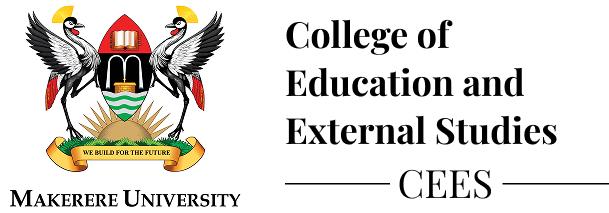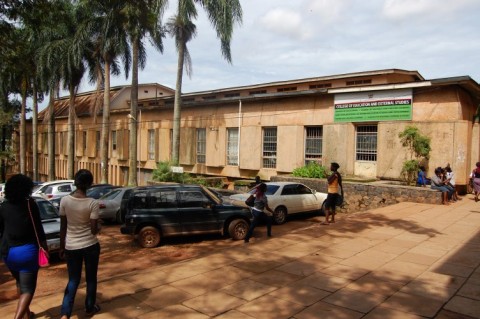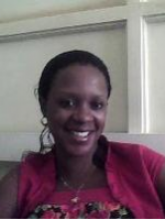The conference on the theme Lifelong Learning and Social Exclusion in and International context was organised by the Department of Education (Lifelong Learning). The conference was held from May 24th to 30th , 2012 in Groningen, the Netherlands. The conference is a joint effort of the Department of Lifelong Leaning, University of Groningen and Globalisation Studies Groningen. With Teachers College, Columbia University, New York; Uganda Martyrs University, Nkozi, Uganda; Makerere University, Kampala, Uganda; Gulu University, Uganda; Eduardo Mondlane University, Maputo, Mozambique; and the University of Limpopo, South-Africa, who were all represented. There were also representative from the Department of Social and Anthropology, Action Research Centre for Social Justice Yezreel Valley College in Israel. Dr George L Openjuru the Dean School of Distance and Lifelong Learning, College of Education and External Studies with financial support from the German Adult Education Association (DVV-International) through the Uganda Adult Education Network (UGAADEN) in this Conference. Ms Peace Tumuheki from the College of Design Art and Technology represented Makerere University. Ms Peace Tumuheki is registering for a PhD in the Department of Education (Lifelong Learning) University of Groningen and Dr George L Openjuru is her Local supervisor.
The conference visited a wide array of issues relating to Lifelong Learning, especially oriented towards dealing with marginal groups in society. This conference provided a forum for the exchange of ideas and experiences, as well as offering a unique opportunity for mutual international cooperation between scholars and professionals from the international field of Lifelong Learning.
The conference programme included plenary sessions, research presentations and discussion on various topics such as follows:
- Preparing young people (including early school leavers) for the labour market in different contexts such as in Uganda, Mozambique, South Africa, India, the Netherlands, and USA;
- Theoretical issues of lifelong learning, social exclusion, and active citizenship;
- Participatory and qualitative research methodologies (Action research, mix-methods);
- PhD projects : work in progress;
The development of our partnerships, funding possibilities, and future activities were also considered along side the conference sessions. Two significant meetings were held with Teachers College Columbia and with the Department of Education (Lifelong Learning).
Outside the conference the following meetings were held to build collaboration and joint projects
- With Teachers College Columbia University (TCCU) we discussed the possibility of collaborating in a project to established, a Centre for Facilitating Workforce Development for Sustainable Economic Growth based at the TCCU campus in New York with support of USAID. The centre is to develop a data-driven, sustainable framework that will generate strategies for effective talent and business development, targeting underserved populations in the regions of East Africa. The Centre will build and test an innovative and collaborative framework for talent development to support private sector growth that will
a. identify talent through systemic assessment that connects sector needs at multiple levels;
b. enable and amplify that talent through an application of state-of-the-art learning methodologies, with a particular emphasis on talent through locally created economic centres that establish talent management processes for entrepreneurship and address science- and technology-related needs;
c. concurrently document and track the process to assess results and create an evidence-based framework that can be generalized to broader and regional labour markets.
This partnership is being developed through collaborative concept development and coming up with funding proposal targeting US based donors.
- The second meeting was explored the possibility of establishing a joint UNESCO chair for adult education between the four universities Makerere University, Gulu University, Uganda Martyrs University and The University of Groningen. A UNESCO chair serves as a prime means of building the capacity of higher education and research institutions through the exchange of knowledge and sharing, in a spirit of international solidarity. It promotes South-South and north south academic partnership in the areas in which UNESCO is interested. We agreed that Makerere University, College of Education and External Studies, School of Distance and Lifelong Learning Should take the lead in the establishment of this chair which should be based at Makerere University School of Distance and Lifelong Learning
George L Openjuru, PhD
Dean School of Distance and Lifelong Learning
College of Education and External Studies



